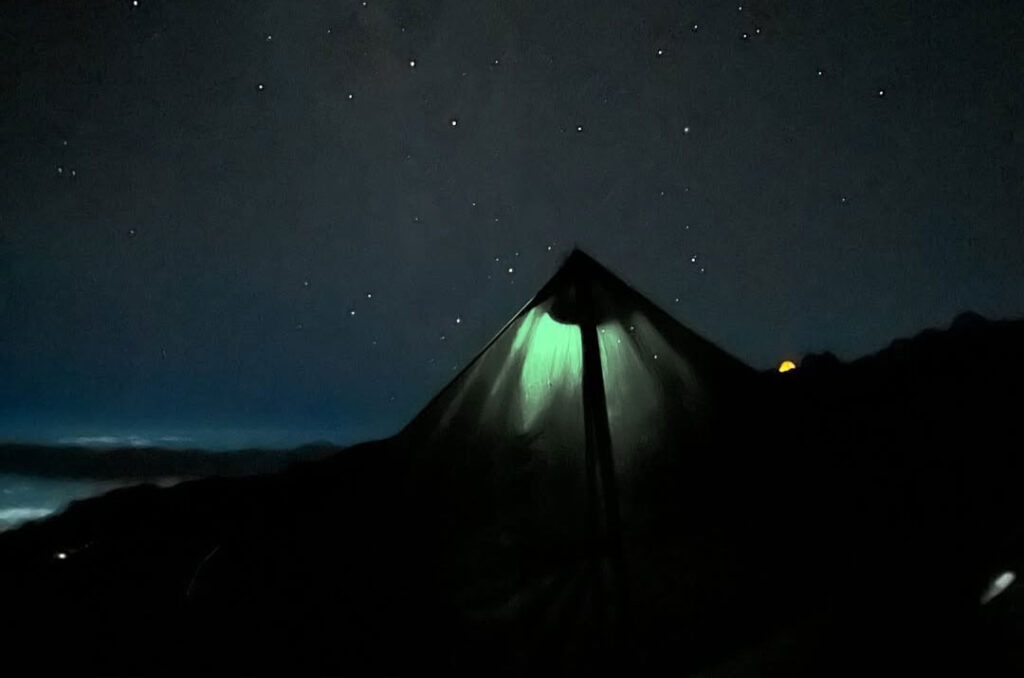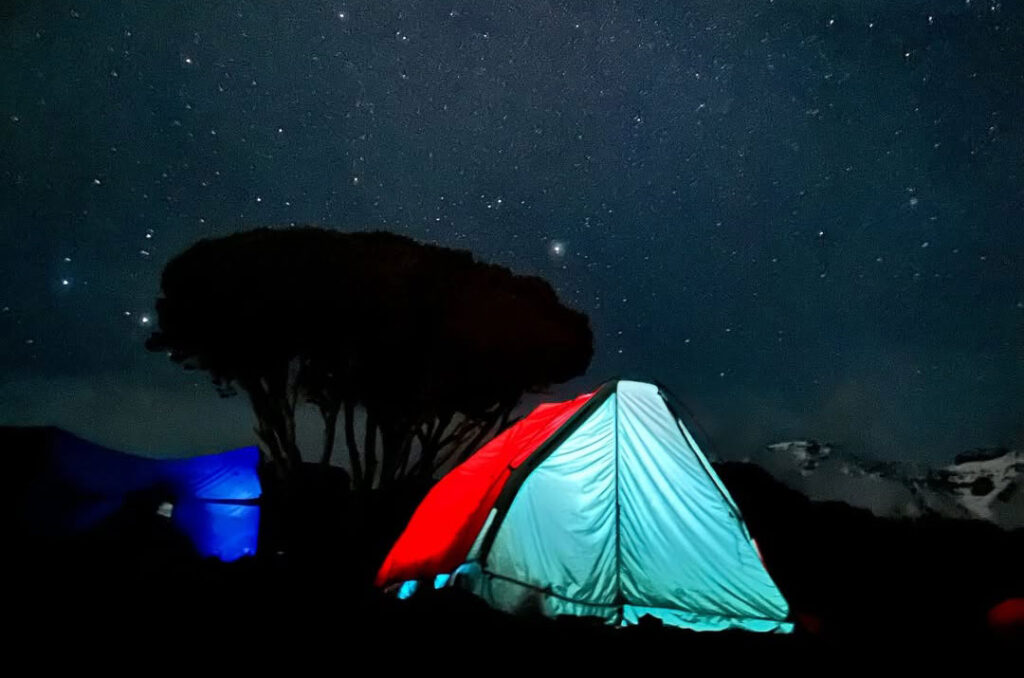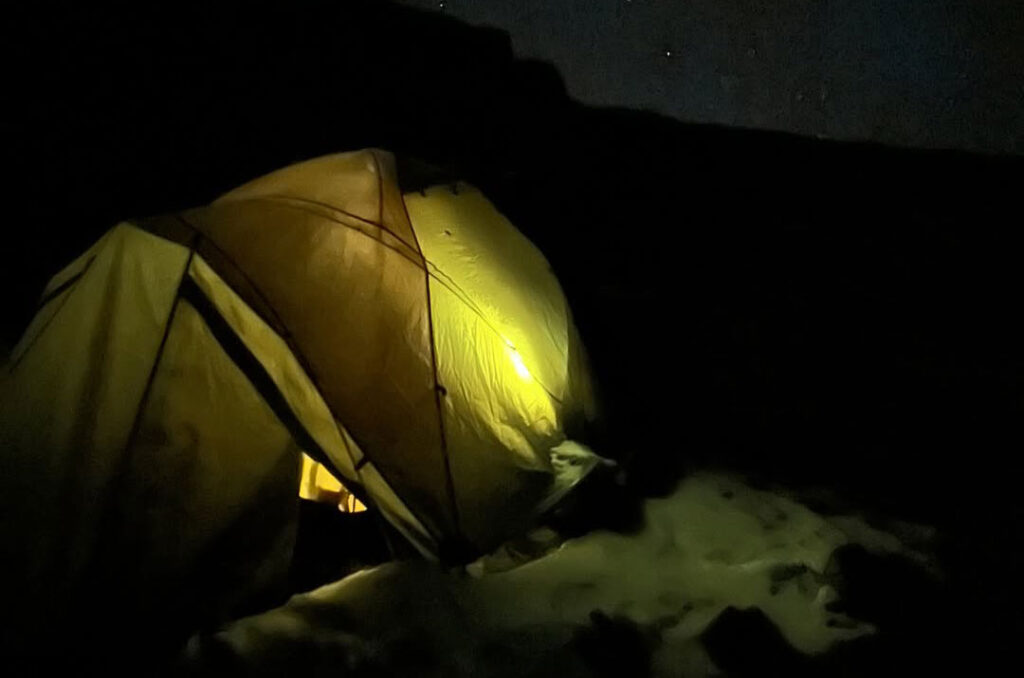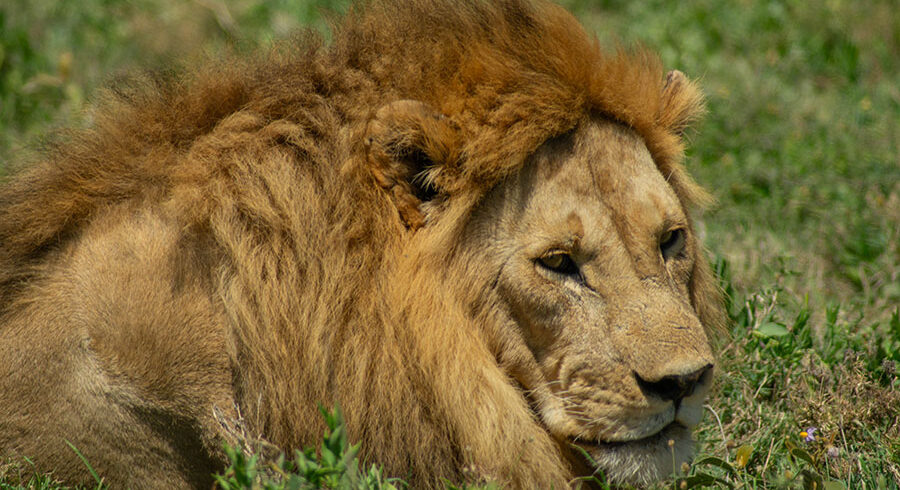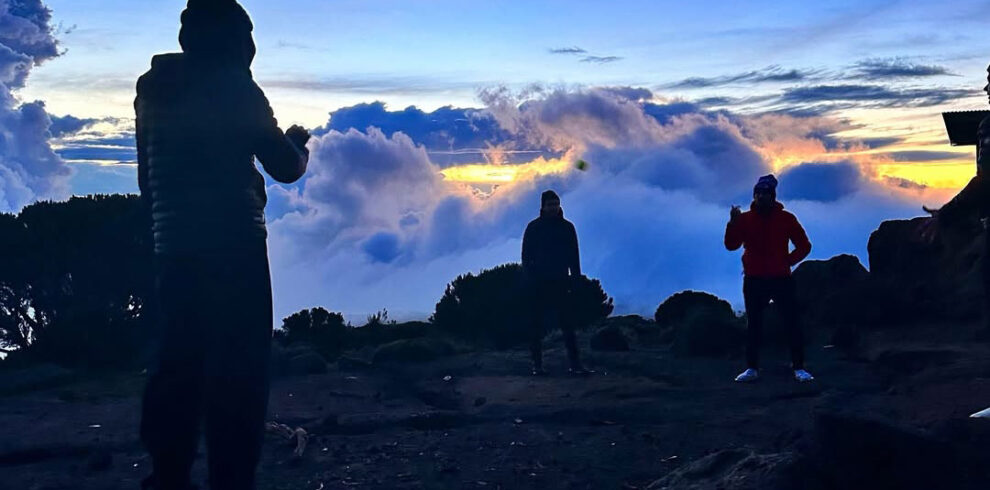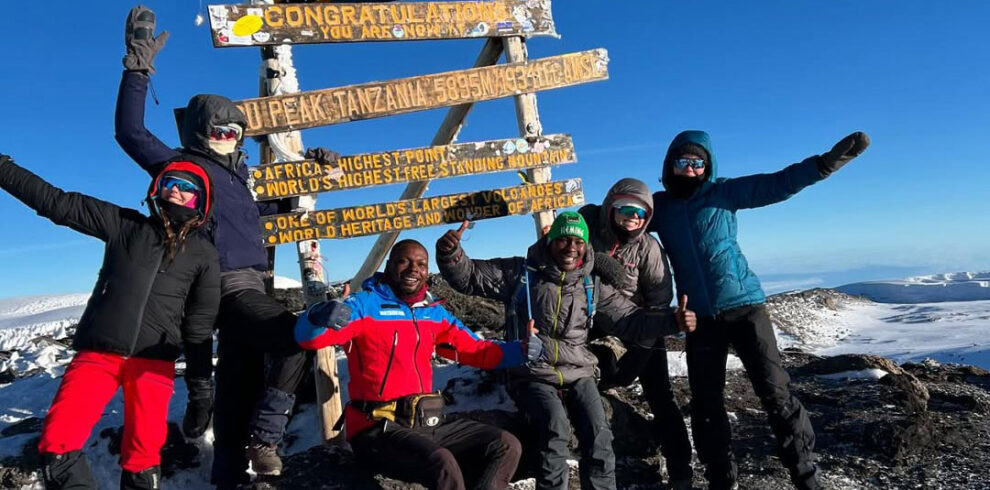Trip Overview
Mount Meru, Tanzania’s second-highest peak, offers an unforgettable trekking experience for hikers seeking breathtaking scenery, fewer crowds, and a rewarding challenge. Often overshadowed by its towering neighbor, Mount Kilimanjaro, Mount Meru stands proudly at 4,566 meters, boasting diverse ecosystems, abundant wildlife, and panoramic summit views.
This 3-day trek takes you through lush montane forest teeming with birds and monkeys, across open moorlands, and up to the dramatic crater rim. The final push to the summit includes a thrilling ridge walk along the crater’s edge, offering incredible sunrise views over the plains below and Kilimanjaro rising in the distance.
Led by professional guides and accompanied by an armed park ranger (due to the presence of wildlife), this adventure is perfect for acclimatization before Kilimanjaro or as a standalone climb for nature-loving trekkers.
Highlights
- Scenic trek through Arusha National Park with rich wildlife viewing
- Stunning views of Mount Kilimanjaro from the summit
- Stay in rustic mountain huts – no need for camping gear
- Professional guides and armed ranger for a safe, guided journey
- Unique crater and ash cone landscape
- Customizations: Can be customized upon request, to meet traveler's needs
- Extensions: Trip Extensions are available on request.
- Trip Availability: All year round.
- Less crowded than Kilimanjaro – a true off-the-beaten-path experience
Itinerary
Your Mount Meru adventure begins with a drive to Momella Gate in Arusha National Park, where you’ll register and meet your professional mountain crew, including an armed ranger who will accompany you for safety. The trek starts through open grassland dotted with giraffes, buffaloes, zebras, and warthogs. As you gradually ascend, the scenery shifts into lush montane forest alive with bird calls and monkey chatter. You may spot colobus monkeys swinging in the canopy or bushbucks rustling in the undergrowth. The trail is peaceful and rich in nature, offering a gentle start to your journey. After about 5 to 6 hours of hiking, you’ll reach Miriakamba Hut, nestled in the forest where you’ll rest for the night and enjoy a warm meal.
Your summit attempt begins in the early hours, usually around 2:00 AM. Equipped with headlamps, warm layers, and determination, you’ll ascend steep trails toward Rhino Point (3,800 m) and continue along a dramatic ridge leading to Socialist Peak (4,566 m) – the true summit of Mount Meru. As dawn breaks, you’ll be rewarded with an unforgettable sunrise over the plains of Tanzania, with Mount Kilimanjaro glowing in the distance. The views from the top are absolutely breathtaking, overlooking the Meru crater, ash cone, and surrounding highlands. After celebrating your achievement and taking photos, you’ll descend back to Saddle Hut for a short rest and brunch. You’ll then continue all the way down to Momella Gate, passing through the same rich forest that welcomed you on day one. After checking out, you’ll be transferred back to Arusha or Moshi, marking the end of an unforgettable mountain journey.
Today you will trek across a plateau of grassy moorland and heather scattered with volcanic rock formations. Our destination for today is the Shira 1 Camp from where there are often views of Kibo Peak floating on the clouds. We gain a reasonable amount of altitude today and parts of the route are fairly steep.
Distance covered: 8.5km / 5.3mi
Approx. time taken: 7 hrs
Meals: Breakfast, Lunch & Dinner Included
High Altitude Camping
Pricing
| Number of Travelers in Group Discount | Cost Per Traveler in US($) |
|---|---|
| 1 Person | $1,500 |
| 2-4 People | $1,400 |
| 5-7 People | $1,300 |
| 8+ People | $1,200 |
Cost
The Cost Includes
- Pre & Post Trek accommodation
- Professional mountain guides, cooks and porters
- Transportation to & from the mountain gate
- Park fees, camping fees & rescue fees
- 18% VAT on tour fees & services
- Double layered Sleeping Mats
- 3 meals daily while on the mountain
- Filtered water throughout the trek
- Portable toilets and toilet tents
- Hot Water For Washing Purposes
- Pick up and drop off at Kilimanjaro International Airport.
- Fair wages for the mountain crew as approved by the Kilimanjaro National Park Authority (KINAPA), Kilimanjaro Association of Tour Operators (KIATO)
The Cost Excludes
- International flights
- Tip to the driver guide and hoteliers
- Insurance fees
- Cost of Visas.
- Bank transfer charges & card payment processing fee.
- Expenses belong to a personal nature e.g. Drinks not included on the meal plans, personal purchases, Laundry etc.
FAQs
Tanzania is very near to the equator. So the sun is always at its acme for most of the day. The sun can be fierce and cause sunburns and sunstroke. Wear a hat, shades, and use SPF sunblock lotion
We aim to keep the size of the public groups to a minimum, as we feel that a group that is much larger than ten trekkers is cumbersome and trekkers lose the sense that they are in a wilderness if there are too many people. That said, if you are a single, private group, then there is no problem accommodating you whatever the size of the group, as, of course, you will be aware before arriving in Tanzania of the number of people you will be trekking with.
Mount Kilimanjaro is the highest freestanding mountain in the world and the highest mountain in Africa. Its highest point is Uhuru Peak on the Kibo crater at 5895m above sea level.
The mountain is in Tanzania, East Africa, about 350km from the equator. The nearest towns are Moshi and Arusha.
Your Kilimanjaro dream climb is entirely your own to design. We will work with you to customize exactly the triumphant Tanzanian mountainous quest experience you want. You go with the people you choose. You leave on whatever day you wish. You decide on your preferred route option, pace, and the number of days you will take
Vegetarian, vegan, gluten-free, celiac, lactose-free, or if you have any allergies, just give us a heads up and you will be catered to
You will need a passport that is valid at least six months beyond your dates of travel with an entry or re-entry visa, duly endorsed.
Yes, we do arrange this. Please send your request to Safari.
We are. We are not agents for anybody, but run the treks ourselves through our own registered Tanzanian local company.
Your mountain camps are set up and broken down each day by expert camp porters. You’ll stay in double occupancy all-weather tents with full-ground pads to keep you and your gear dry. Private toilet tents, solar-lit dining tents with tables and chairs, and basins of hot water for washing are provided in every camp. Grand Traverse treks include upgraded solar-lit walk-in-height sleeping tents with mountaineering beds and mattresses for additional comfort.
Highly-trained chefs prepare three hot nutritious meals daily, as well as trail snacks and afternoon tea each day. You’ll eat all your meals in a solar-lit dining tent with your fellow trekkers and head guide. Delicious vegetarian, vegan, gluten-free and other specialty meals can be provided (with advance request). We’re happy to send you a sample menu—just ask!
Prior to the climb, you’ll enjoy an acclimatization day with wildlife viewing and nature walks. Trekking through the rain forest, you’re likely to spot black-and-white Colobus monkeys, tropical birds and more.
On most routes, you’ll trek 4-7 hours most days. On certain routes you’ll trek as many as 10-15 hours on the longest days.
An overnight stop at Crater Camp is an optional extra on any customized Kilimanjaro climb , usually lasting eight actual mountain days or more on the Shira, Lemosho, Umbwe and Machame routes. Possibly the most bizarre place you will ever see, it is visited by less than 5% of the 40,000 to 50,000 people who annually ascent Kilimanjaro on a distinct highlands voyage in northern Tanzania
Your Kilimanjaro dream climb is entirely your own to design. We will work with you to customize exactly the triumphant Tanzanian mountainous quest experience you want. You go with the people you choose. You leave on whatever day you wish. You decide on your preferred route option, pace, and the number of days you will take.
Mount Kilimanjaro can be climbed anytime throughout the year. Most travelers prefer climbing during the dry seasons: December to March, June to October. Many consider the best months to climb Kilimanjaro to be January, February, and September.
